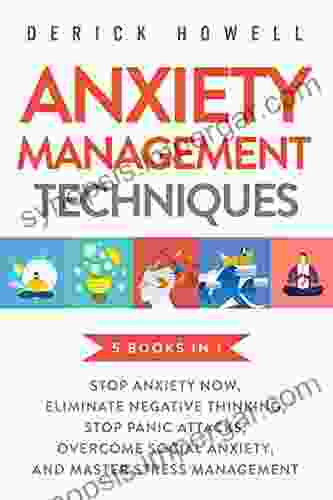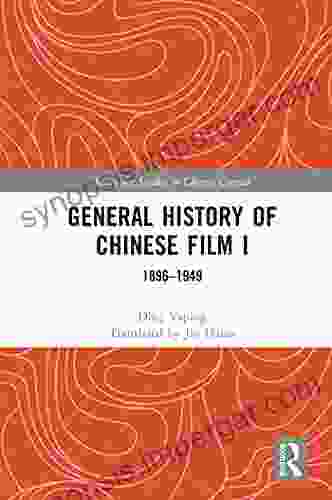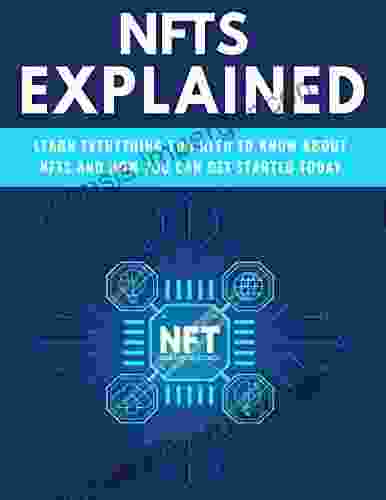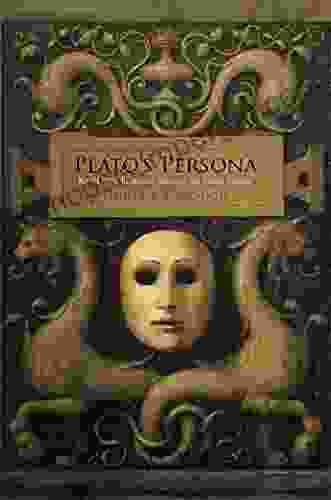Marsilio Ficino: Renaissance Humanism and Platonic Traditions

4.7 out of 5
| Language | : | English |
| File size | : | 9243 KB |
| Text-to-Speech | : | Enabled |
| Screen Reader | : | Supported |
| Enhanced typesetting | : | Enabled |
| Print length | : | 347 pages |
Marsilio Ficino, a towering figure of the Italian Renaissance, emerged as a beacon of humanism and a passionate advocate for Platonic philosophy. His profound scholarship and dedication to the revival of classical thought left an indelible mark on the intellectual landscape of his time and beyond.
The Early Life and Influences of Marsilio Ficino
Born in Figline Valdarno, Italy, in 1433, Marsilio Ficino was fortunate to grow up in a family that nurtured his intellectual curiosity. His father, a prominent physician, instilled in him a love of learning and the importance of seeking knowledge from all available sources.
Ficino's early education focused on the study of Latin and Greek classics, including the writings of Cicero, Seneca, and Plato. These works kindled a deep fascination within him for the ideas and values of the ancient world, particularly the philosophy of Plato.
The Rediscovery of Plato in the Renaissance
During the Middle Ages, Plato's works had been largely neglected in Western Europe. Ficino, however, was determined to bring Plato's philosophy back to life. With the support of his influential patron, Cosimo de' Medici, he devoted himself to translating Plato's complete works into Latin.
Ficino's translations marked a pivotal moment in the Renaissance. They made Plato's ideas accessible to a wider audience, sparking a renewed interest in his philosophy and its profound implications for understanding the human condition.
The Founding of the Platonic Academy
In 1462, Ficino founded the Platonic Academy in Florence, a gathering of scholars and intellectuals dedicated to the study of Plato's philosophy. The academy became a vibrant center for philosophical discussions and the dissemination of Platonic ideas throughout Europe.
Among its members were prominent humanists such as Pico della Mirandola and Lorenzo de' Medici. Together, they explored the connections between Platonic thought and other disciplines, including medicine, poetry, and theology.
Ficino's Humanism and the Dignity of Man
Marsilio Ficino's humanism was deeply rooted in his belief in the inherent dignity and potential of each human being. He saw Plato's philosophy as a means to cultivate the human soul and achieve a state of virtue and happiness.
Ficino emphasized the importance of education, contemplation, and practical ethics in the pursuit of human excellence. He believed that through the study of Plato's works, individuals could develop a deeper understanding of themselves and their purpose in life.
The Influence of Neoplatonism
While Ficino's philosophy was primarily based on Plato's teachings, he also drew inspiration from Neoplatonism, a philosophical school that emerged in the late antique period. Neoplatonists sought to reconcile Plato's ideas with elements of Eastern mysticism and religious traditions.
Ficino's Neoplatonic influences can be seen in his emphasis on the importance of divine love, the role of the soul in the cosmos, and the mystical experiences available to humans through contemplation and communion with the divine.
Ficino's Impact on Western Thought
Marsilio Ficino's contributions to Western thought were immeasurable. His translations of Plato's works paved the way for a renewed understanding of classical philosophy and its relevance to the Renaissance worldview.
Ficino's humanist ideals and his emphasis on human dignity influenced countless thinkers and writers in subsequent generations, including Erasmus, Shakespeare, and John Milton. His work laid the foundation for the development of modern philosophy and shaped the intellectual landscape of the Western world.
Marsilio Ficino stands as one of the towering intellects of the Renaissance era. His passion for Platonic philosophy and his dedication to the revival of classical thought transformed the intellectual landscape of his time and beyond.
Through his translations, his founding of the Platonic Academy, and his profound scholarship, Ficino played a pivotal role in the rediscovery of Plato's ideas and the shaping of humanist thought. His legacy continues to inspire scholars and seekers of wisdom even today.
4.7 out of 5
| Language | : | English |
| File size | : | 9243 KB |
| Text-to-Speech | : | Enabled |
| Screen Reader | : | Supported |
| Enhanced typesetting | : | Enabled |
| Print length | : | 347 pages |
Do you want to contribute by writing guest posts on this blog?
Please contact us and send us a resume of previous articles that you have written.
 Book
Book Novel
Novel Page
Page Chapter
Chapter Text
Text Story
Story Genre
Genre Reader
Reader Library
Library Paperback
Paperback E-book
E-book Magazine
Magazine Newspaper
Newspaper Paragraph
Paragraph Sentence
Sentence Bookmark
Bookmark Shelf
Shelf Glossary
Glossary Bibliography
Bibliography Foreword
Foreword Preface
Preface Synopsis
Synopsis Annotation
Annotation Footnote
Footnote Manuscript
Manuscript Scroll
Scroll Codex
Codex Tome
Tome Bestseller
Bestseller Classics
Classics Library card
Library card Narrative
Narrative Biography
Biography Autobiography
Autobiography Memoir
Memoir Reference
Reference Encyclopedia
Encyclopedia Tim Bryan
Tim Bryan Dick Couch
Dick Couch Dee Dee Moreland
Dee Dee Moreland Deke Sharon
Deke Sharon Debra Bick
Debra Bick Diane Cook
Diane Cook Patrick Harpur
Patrick Harpur H Carl Haywood
H Carl Haywood Diane Michaels
Diane Michaels David R Ashbaugh
David R Ashbaugh Michael N Kalafatas
Michael N Kalafatas Richard G Hovannisian
Richard G Hovannisian David Reeve
David Reeve Jack Shitama
Jack Shitama David Nasaw
David Nasaw Debbie Smith
Debbie Smith Maggie Mcreynolds
Maggie Mcreynolds Ulf Leonhardt
Ulf Leonhardt Dev Mukherji
Dev Mukherji David Shenk
David Shenk
Light bulbAdvertise smarter! Our strategic ad space ensures maximum exposure. Reserve your spot today!

 Jeremy MitchellUnveiling the Enigmatic Masterpieces of "The Arc Light Anthology" by Moustafa...
Jeremy MitchellUnveiling the Enigmatic Masterpieces of "The Arc Light Anthology" by Moustafa...
 Calvin FisherTake Control of Your Anxiety: A Comprehensive Guide to Eliminating Negative...
Calvin FisherTake Control of Your Anxiety: A Comprehensive Guide to Eliminating Negative... Anthony BurgessFollow ·19.7k
Anthony BurgessFollow ·19.7k Craig BlairFollow ·17.2k
Craig BlairFollow ·17.2k W. Somerset MaughamFollow ·12.8k
W. Somerset MaughamFollow ·12.8k Ian McEwanFollow ·5.1k
Ian McEwanFollow ·5.1k Ralph Waldo EmersonFollow ·18.5k
Ralph Waldo EmersonFollow ·18.5k Samuel WardFollow ·6k
Samuel WardFollow ·6k Andy ColeFollow ·16.2k
Andy ColeFollow ·16.2k Johnny TurnerFollow ·19.9k
Johnny TurnerFollow ·19.9k

 Ivan Turgenev
Ivan Turgenev38 Art Made During The Pandemic Digitally Enhanced Art...
By [Author's Name] The year 2024 was a time...

 F. Scott Fitzgerald
F. Scott FitzgeraldAmazing Cooking Guide To South Beach Diet: Your Culinary...
Embark on a...

 Zachary Cox
Zachary CoxGeneral History of Chinese Film: A Journey Through Time...
Origins and...

 Cristian Cox
Cristian CoxUnderstanding Antidepressants: An In-Depth Guide to...
Unleashing the Power of...

 Jeremy Cook
Jeremy CookUnlock the NFT Revolution: A Comprehensive Guide for...
The world of Non-Fungible Tokens (NFTs) has...

 Kevin Turner
Kevin TurnerSeneca and Roman Slavery Under Nero's Rule: An In-Depth...
During the reign of...
4.7 out of 5
| Language | : | English |
| File size | : | 9243 KB |
| Text-to-Speech | : | Enabled |
| Screen Reader | : | Supported |
| Enhanced typesetting | : | Enabled |
| Print length | : | 347 pages |








